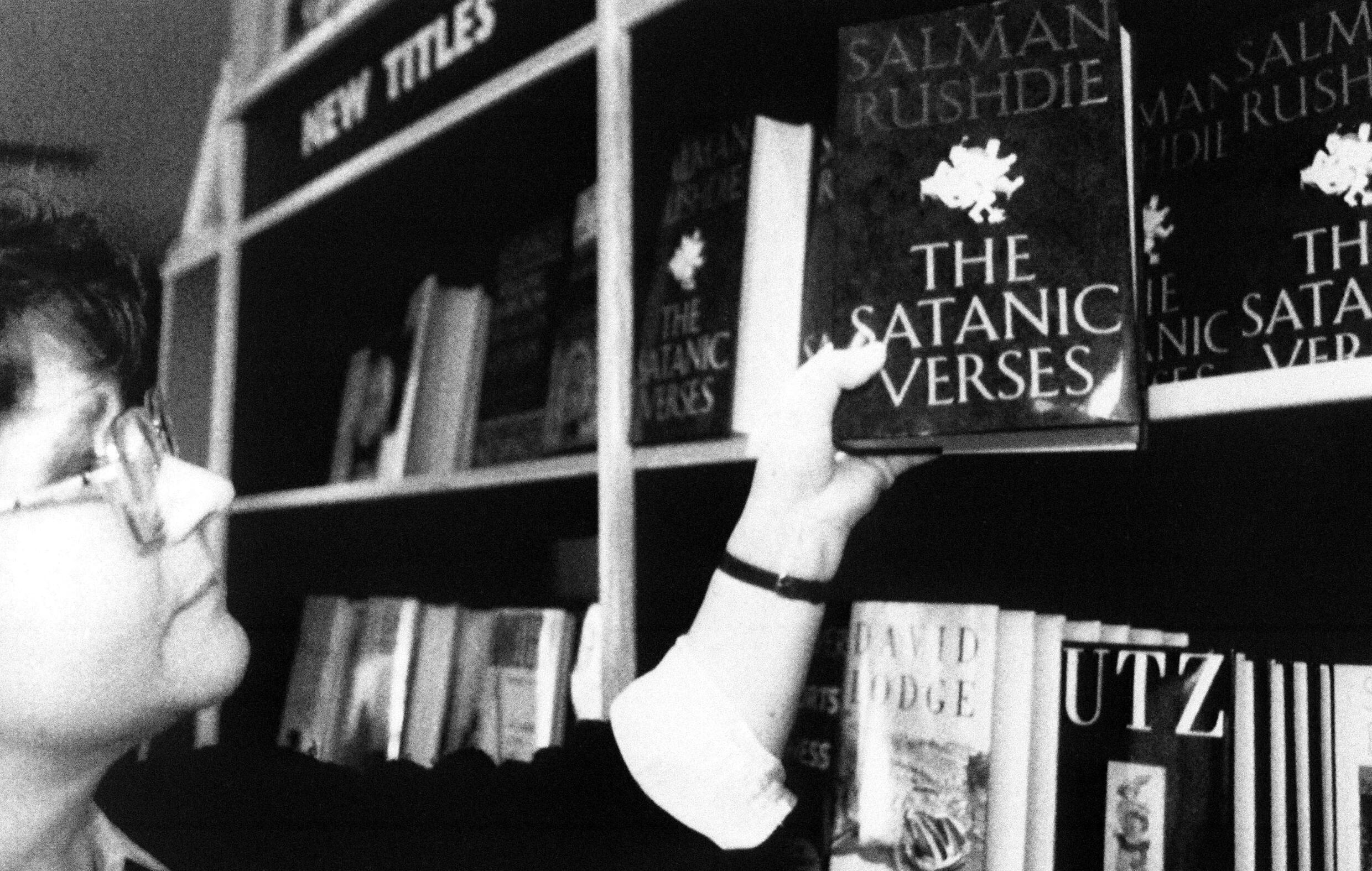Since 1988, Salman Rushdie has been under threat, and there is even a $3 million bounty on his head. An assassination attempt, which once again highlights the importance of the Indian writer, who defended freedom of expression against religious fanaticism. An anger against the publication of his novel ‘The Satanic Verses’, which has not ceased to be valid, as was confirmed in the terrorist attack against the French satirical weekly Charlie Hebdo.
The symbols do not understand temporary lines. When they arise, you can read an era, but also the conflicts of humanity.
Salman Rushdie was stabbed to death on Friday, August 11, in Chautauqua, New York state, sending the world back to 1988, when Ayatollah Khomeini of the Islamic Republic of Iran issued a fatwa, ordering Muslims to kill the Indian writer.
They put a $3 million bounty on his head. All this for the title of a book, ‘The Satanic Verses’, in which a bad translation into Arabic turned the name into a blasphemy, since they are two verses eliminated by Mohammed from the Koran.
A book that tells the story of two Indian actors who survive a plane crash caused by an attack. In the story there are several references to Islam and the life of the Prophet Muhammad, such as the use of the name of his wives for prostitutes that appear in the novel, something that also angered the most radical Muslims.

The writer’s life would be marked: for 10 years he used a pseudonym, Joseph Anton, and would be protected by Scotland Yard, the British police. A life on alert, but a life that has become the symbol of freedom of expression.
Salman Rushdie was born 75 years ago in Mumbai, the same year as India’s independence, into a non-practicing Muslim family. In addition to religious fanaticism, in recent times he has also criticized India’s nationalism, promoted by current President Narendra Modi, who seeks to end the autonomy of the majority Muslim region of Kashmir, which borders Pakistan.
Rushdie was educated in the UK, graduating with a history degree from King’s College, before becoming a successful writer, winning awards such as the Booker and Whitbread. But beyond his literary quality, his fame reached another level in 1988 when he published ‘The Satanic Verses’. Three decades after its publication, fear ceased to be a construction and became real.
A persecuted novel
Against ‘The Satanic Verses’ there were protests, it was banned in India, Pakistan or South Africa, radicals burned copies and there were diplomatic ruptures between Western countries and Iran.
But the request to kill Rushdie was not limited to him: Hitoshi Igarashi, the novel’s translator into Japanese, was killed; Ettore Capriolo, the Italian translator, was stabbed; they shot at the publisher of the novel in Norway and in Turkey they burned down the hotel where Aziz Nesin, the Turkish translator, was staying.

A small sample of the Islamic reaction against the West, which showed how far the fanaticism of religions can go, as had also happened before in the Crusades and the Christian persecution against Muslims.
After 10 years hidden from public life, Salman Rushdie opted to recover his identity and champion freedom of expression, in addition to apologizing to those offended.
Before Charlie Hebdo, Salman Rushdie
In 1988 Rushdie received death threats while Osama bin Laden, the great villain of the 21st century, founded Al Qaeda. They were the first steps of what was to come and that would mark the new geopolitical stage, where the Cold War ended up giving way to the War on Terror.
In 2001, Bin Laden would leave one of the images of contemporary history: the twin towers of New York fell; in 2004, in Madrid, Spain, bombs exploded on commuter trains; in 2005, London subway and bus bombings; in 2015 attacks on a concert hall and a stadium in Paris. They are the most significant, which were accompanied by others in Barcelona, Brussels, but also in Sri Lanka, Nigeria or Pakistan.

Before this assassination attempt against Rushdie, in France, also in 2015, the Charlie Hebdo massacre took place. 12 people died after an attack by Islamic fundamentalists against the newsroom. Since 2011, the satirical weekly did not hesitate to caricature Muhammad, taking advantage of freedom of expression and the press. A saying became popular: “Je suis Charlie (I am Charlie)”, in a way of vindicating French republican values.
More recently, in 2020, Samuel Paty, a French professor, was beheaded for showing caricatures of Muhammad in a class on secularism and freedom of expression. An event that shocked France and the international community, and before which President Emmanuel Macron held a state funeral, which at the same time became a claim for freedom in the face of terror.
But, as pointed out at the beginning, before Charlie and Samuel Paty, there was already Rushdie.














Add Comment